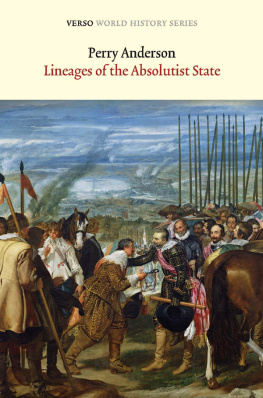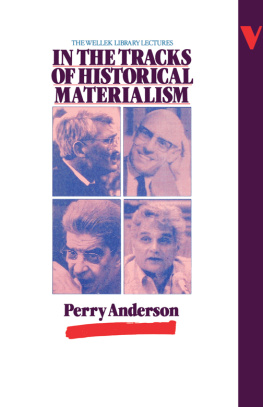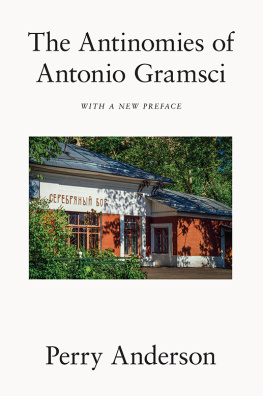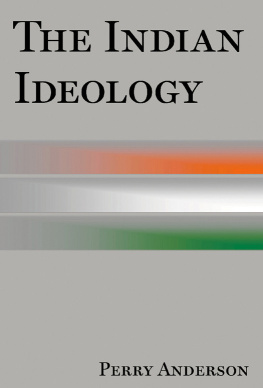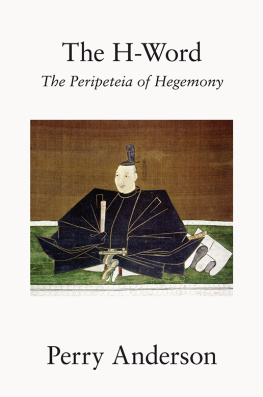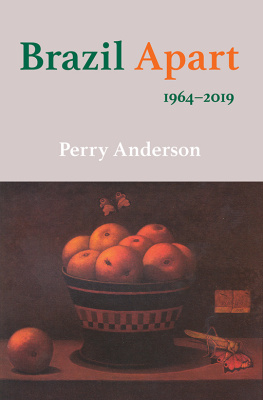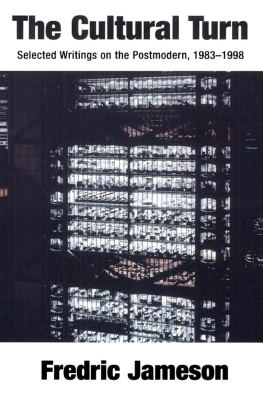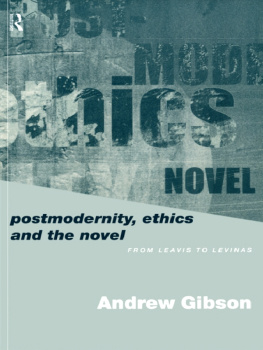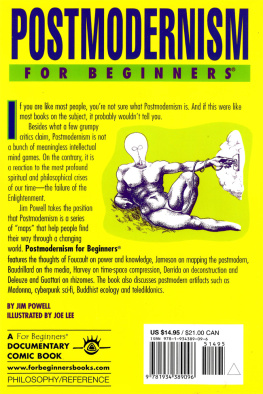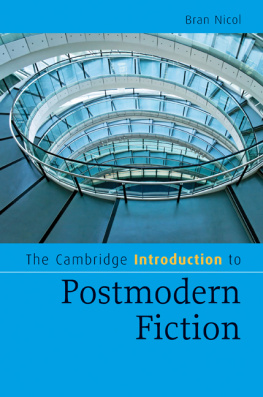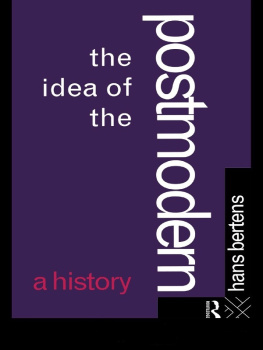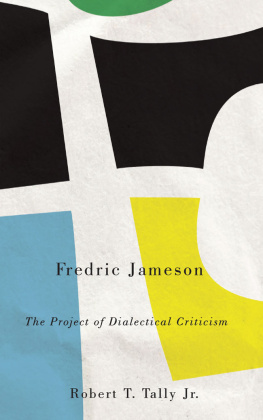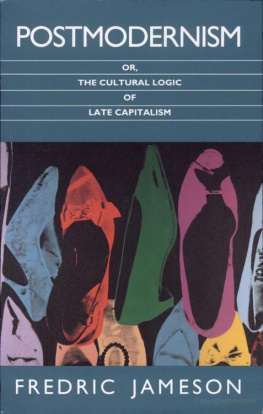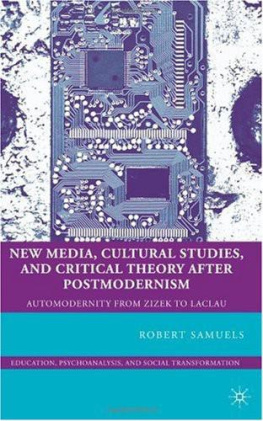The Origins of Postmodernity
PERRY ANDERSON

London New York
First published by Verso 1998
Perry Anderson 1998
All rights reserved
Reprinted 1998, 1999
The moral rights of the author have been asserted
Verso
UK: 6 Meard Street, London W1V 3HR
USA: 180 Variek Street, New York NY 10014-4606
Verso is the imprint of New Left Books
ISBN 1-85984-222-4 (pbk)
ISBN 1-85984-864-8
British Library Cataloguing in Publication Data
A catalogue record for this book is available from the British Library
Library of Congress Cataloging-in-Publication Data
A catalog record for this book is available from the Library of Congress
Typeset by SetSystems Ltd, Saffron Walden
Printed by Biddles Ltd, Guildford and King's Lynn
Contents
| Foreword |
| 1. Prodromes |
| 2. Crystallization |
| 3. Capture |
| 4. After-effects |
| Index |
vii
Foreword
This essay started when I was asked to introduce a new collection of writings by Fredric Jameson, The Cultural Turn. In the event, it became too long for the purpose. In publishing it as a text by itself, however, I have not wanted to alter its form: it is best read in conjunction with the volume that inspired it. Although I have never written about a body of work that I did not, in one way or another, admire, an element of resistance was in the past always an ingredient in the impulse to do so. Intellectual admiration is in any case one thing, political sympathy another. This short book tries to do something else, which I have always found difficult: to express a sense of the achievement of a thinker with whom, it might be said, I lack the safety of sufficient distance. I have no assurance that I have succeeded. But some larger debate around Jamesons work in general is overdue, and this attempt may at least help to encourage it.
The title of the text has a two-fold reference. The principal aim of the essay is to offer a more historical account of the origins of the idea of postmodernity than is currently available: one that tries to set its different sources more precisely in their spatial, political and intellectual settings, and with greater attention to temporal sequence also topical focus than has become customary. Only against this background, my argument goes, does the peculiar stamp of Jamesons contribution emerge in full relief. A secondary purpose is to suggest, more tentatively, some of the conditions that may have released the postmodern not as idea, but as phenomenon. In part, these are comments that seek to revise an earlier attempt to sketch the premises of viii FOREWORD modernism in the previous fin de sicle, and in part they try to engage with the lively contemporary literature on these questions.
I would like to thank the help of the Wissenschaftskolleg, Berlin, where this work was completed, and its exceptional librarians; and express my debts generally to Tom Mertes and my students in Los Angeles.
Prodromes
Lima Madrid London
Postmodernism as term and idea supposes the currency of modernism. Contrary to conventional expectation, both were born in a distant periphery rather than at the centre of the cultural system of the time: they come not from Europe or the United States, but from Hispanic America. We owe the coinage of modernism as an aesthetic movement to a Nicaraguan poet, writing in a Guatemalan journal, of a literary encounter in Peru. Rubn Darios initiation in 1890 of a self-conscious current that took the name of modernismo drew on successive French schools romantic, parnassian, symbolist for a declaration of cultural independence from Spain that set in motion an emancipation from the past of Spanish letters themselves, in the cohort of the 1890s. Where in English the notion of modernism scarcely entered general usage before mid-century, in Spanish it was canonical a generation earlier. Here the backward pioneered the terms of metropolitan advance much as in the nineteenth century, liberalism was an invention of the Spanish rising against French occupation in the epoch of Napoleon, an exotic expression from Cadiz at home only much later in the drawing-rooms of Paris or London.
So too the idea of a postmodernism first surfaced in the Hispanic inter-world of the 1930s, a generation before its appearance in England or America. It was a friend of Unamuno and Ortega, Federico de Onis, who struck off the term postmodernismo. He used it to describe a conservative reflux within modernism itself: one which sought refuge from its formidable lyrical challenge in a muted perfectionism of detail and ironic humour, whose most original feature was the newly authentic expression it afforded women. De Onis contrasted this pattern short-lived, he thought with its sequel, an ultramodernismo that intensified the radical impulses of modernism to a new pitch, in a series of avant-gardes that were now creating a rigorously contemporary poetry of universal reach. De Oniss famous anthology of Spanish-language poets, organized according to this schema, appeared in Madrid in 1934, as the Left took office in the Republic amid the count-down to the Civil War. Dedicated to Antonio Machado, its panorama of ultramodernism ended with Lorca and Vallejo, Borges and Neruda.
Minted by De Onis, the idea of a postmodern style passed into the vocabulary of Hispanophone criticism, if rarely used by subsequent writers with his precision; This was the task Toynbee set himself in the six volumes of his Study published but still incomplete before 1939.
By the time he resumed publication fifteen years later, Toynbees outlook had altered. The Second World War had vindicated his original inspiration a deep hostility to nationalism, and guarded suspicion of industrialism. Decolonization, too, had confirmed Toynbees sceptical view of Western imperialism. The periodization he had proposed twenty years earlier now took on clearer shape in his mind. In his eighth volume, published in 1954, Toynbee dubbed the epoch that had opened with the Franco-Prussian War the post-modern age. But his definition of it remained essentially negative. Western communities became modern, he wrote, just as soon as they had succeeded in producing a bourgeoisie that was both numerous enough and competent enough to become the predominant element in society.
Toynbee was no particular admirer of the resultant regimes. But he was scathing of the hubristic illusions of the late imperial West. At the close of the nineteenth century, he wrote, an unprecedently prosperous and comfortable Western middle-class was taking it as a matter of course that the end of one age of one civilizations history was the end of History itself at least as far as they and their kind were concerned. They were imagining that, for their benefit, a sane, safe, satisfactory Modern Life had miraculously come to stay as a timeless present. Four decades later, confronted with the prospect of a third nuclear war, Toynbee decided that the very category of civilization, with which he had set out to rewrite the pattern of human development, had lost pertinence. In one sense, Western civilization as the unbridled primacy of technology had become universal, but as such promised only the mutual ruin of all. A global political authority, based on the hegemony of one power, was the condition of any safe passage out of the Cold War. But in the long run, only a new universal religion which would necessarily be a syncretistic faith could secure the future of the planet.


